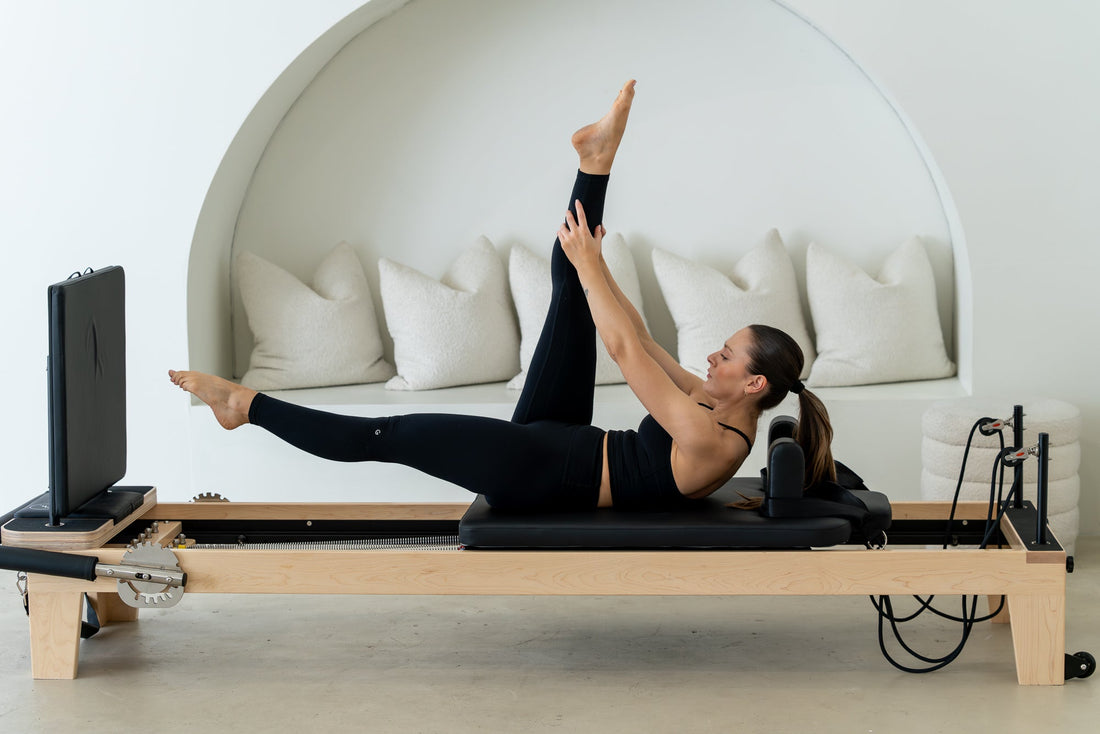In today's fast-paced world, mental health is a growing concern for many people. Stress and anxiety can significantly impact our daily lives, affecting our mood, productivity, and overall well-being. While there are many ways to address mental health, one effective method is through mind-body exercises like Pilates. This article will explore how Pilates can help reduce stress and anxiety, and provide practical tips for incorporating these exercises into your daily routine.
The Mind-Body Connection:
Pilates is more than just a physical workout; it’s a mind-body exercise that focuses on the connection between mental and physical health. By emphasizing controlled movements, deep breathing, and mindfulness, Pilates can help improve mental clarity, reduce stress, and promote a sense of calm. Here’s how:
-
Promotes Mindfulness:
- Pilates encourages you to focus on your breath and movements, helping you stay present in the moment. This mindfulness practice can reduce stress and anxiety by shifting your attention away from negative thoughts and worries.
-
Improves Breathing:
- Deep, controlled breathing is a fundamental aspect of Pilates. Practicing deep breathing can help activate the parasympathetic nervous system, which promotes relaxation and reduces the stress response.
-
Releases Tension:
- Pilates exercises involve stretching and lengthening muscles, which can help release physical tension stored in the body. This physical release can also lead to a reduction in mental tension.
-
Enhances Body Awareness:
- Pilates helps improve body awareness, making you more attuned to how your body feels. This heightened awareness can help you identify and address physical symptoms of stress, such as muscle tightness and shallow breathing.
-
Boosts Endorphins:
- Like other forms of exercise, Pilates can increase the production of endorphins, the body's natural "feel-good" chemicals. These endorphins can help improve mood and reduce feelings of anxiety.
Pilates Exercises to Reduce Stress and Anxiety:
Incorporating Pilates into your daily routine can help you manage stress and anxiety more effectively. Here are some simple Pilates exercises to get you started:
-
Breathing Exercise:
- Sit or lie down in a comfortable position. Place one hand on your chest and the other on your abdomen. Inhale deeply through your nose, allowing your abdomen to rise. Exhale slowly through your mouth, feeling your abdomen fall. Repeat for 5-10 breaths. This exercise helps calm the mind and reduce stress.
-
Cat-Cow Stretch:
- Begin on your hands and knees in a tabletop position. Inhale as you arch your back, lifting your head and tailbone towards the ceiling (cow pose). Exhale as you round your spine, tucking your chin and tailbone under (cat pose). Repeat for 10-15 breaths. This stretch helps release tension in the spine and promote relaxation.
-
Spine Twist:
- Sit tall with your legs extended straight in front of you. Inhale to lengthen your spine, then exhale as you twist your torso to the right, placing your left hand on your right knee and your right hand behind you for support. Hold for a few breaths, then return to the starting position and repeat on the other side. This exercise helps improve spinal mobility and release tension.
-
Child’s Pose:
- Kneel on the floor with your big toes touching and your knees spread apart. Sit back on your heels and extend your arms forward, resting your forehead on the mat. Breathe deeply and hold for 1-2 minutes. This pose promotes relaxation and stretches the back and hips.
-
Leg Circles:
- Lie on your back with your legs extended. Lift your right leg towards the ceiling and draw small circles with your foot, keeping your leg straight. Repeat for 10-15 circles, then switch directions. Repeat on the other leg. This exercise helps improve circulation and flexibility while promoting a sense of calm.
Tips for Incorporating Pilates into Your Daily Routine:
- Set Aside Time: Dedicate a specific time each day for your Pilates practice, whether it’s in the morning, during a lunch break, or before bed. Consistency is key to reaping the mental health benefits of Pilates.
- Create a Calm Environment: Find a quiet, comfortable space where you can practice without distractions. Consider using calming music or aromatherapy to enhance your relaxation.
- Focus on Your Breath: Pay attention to your breathing throughout your practice. Deep, controlled breaths can help you stay present and reduce stress.
- Start Slow: If you’re new to Pilates, start with short sessions and gradually increase the duration as you become more comfortable with the exercises.
- Listen to Your Body: Be mindful of how your body feels during and after your practice. Modify exercises as needed to suit your comfort level and abilities.
Conclusion: Embrace the Mental Health Benefits of Pilates
Pilates offers a holistic approach to improving mental health by promoting mindfulness, reducing physical tension, and enhancing overall well-being. By incorporating Pilates into your daily routine, you can effectively manage stress and anxiety, leading to a healthier and happier life. Remember to start slow, focus on your breath, and create a calming environment for your practice. With consistent effort, you’ll soon experience the mental and physical benefits of this wonderful exercise method. So, roll out your mat, take a deep breath, and start your journey to better mental health with Pilates!

